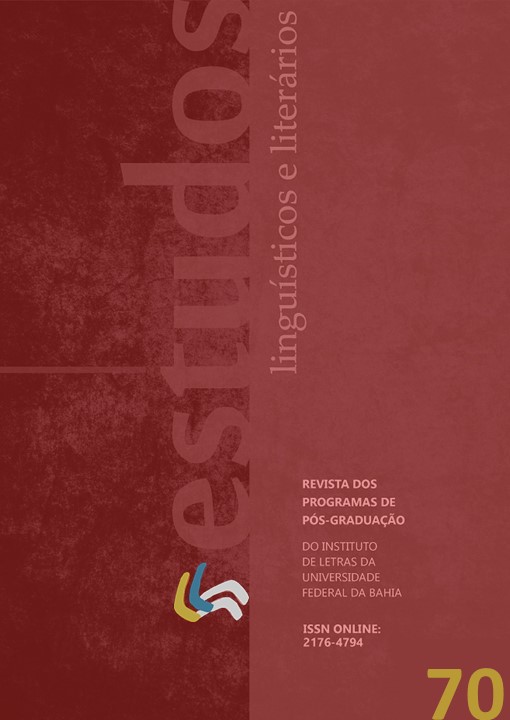A FEELING AS UGLY AS NUMBNESS
DOI:
https://doi.org/10.9771/ell.i70.44081Keywords:
Affects, Queer studies, Chelsea Girls, Eileen Myles, NumbnessAbstract
This paper aims to analyse the ways in which numbness, an affect traditionally seen as negative, may be useful when interrogating heteronormative social structures. For this end, a reading of numbness in Eileen Myles’s Chelsea Girls is carried out so as to highlight the interpretations of the state of numbness in the interactions the protagonist establishes with the world around her. Considering the contributions of theorists such as Muñoz (1999), Despentes (2016), Ahmed (2010) among others, it may be concluded that numbness is a complex affect which, in negotiations not devoid of suffering, reveals inconsistencies in our social and political scene by questioning what has been conventionally named “good feelings”. This way, numbness becomes an “ugly feeling” with possible political uses.
Downloads
References
AHMED, Sara. The Promise of Happiness. Durham: Duke University Press, 2010.
BERLANT, Lauren. Cruel Optimism. Durham: Duke University Press, 2011.
BOURCIER, Sam. Homo Inc.Orporated: O triângulo e o unicórnio que peida. Tradução de Marcia Bechara. São Paulo: n-1 edições, 2020.
BUTLER, Judith Butler. Problemas de Gênero: Feminismo e subversão da identidade. Tradução de Renato Aguiar. Rio de Janeiro: Civilização Brasileira, 2015.
DESPENTES, Virginie. Teoria King Kong. Tradução de Márcia Bechara. São Paulo: n-1 edições, 2016.
HALBERSTAM, Jack. A Arte Queer do Fracasso. Tradução de Bhuvi Libanio. Recife: CEPE, 2020.
HALBERSTAM, Jack. Gaga Feminism: Sex, gender, and the end of normal. Boston: Beacon Press, 2012.
HALBERSTAM, Judith (Jack). In a Queer Time & Place: Transgender bodies, subcultural lives. New York: New York University Press, 2005.
HURN, Rachel. Marks on Paper: Eileen Myles’s Chelsea Girls. The Paris Review, New York, 2013. Disponível em https://www.theparisreview.org/blog/2013/03/14/marks-on-paper-eileen-myles-chelsea-girls/. Acesso em 02 Jul. 21.
KIPNIS, Laura. Against Love: A polemic. New York: Vintage Books, 2004.
KLINGER, Diana. Literatura e Ética: Da forma para a força. Rio de Janeiro: Rocco, 2014.
LOVE, Heather. Feeling Backward: Loss and the politics of queer history. Cambridge & London: Harvard University Press, 2009.
MENEZES, Léa Santana de. Quando o obsceno compõe a cena: outras feminidades para compor novos feminismos. In: SOARES, Mayana Rocha; BRANDÃO, Simone; FARIA, Thais (Orgs.). Lesbianidades Plurais: Outras produções de saberes e afetos. Salvador: Editora Devires, p. 119-128, 2019.
MUÑOZ, José Esteban. Disidentifications: Queers of color and the performance of politics. Minneapolis e Londres: University of Minnesota Press, 1999.
MYLES, Eileen. Chelsea Girls. Tradução de Bruna Beber. São Paulo: Todavia, 2019.
NGAI, Sianne. Ugly Feelings. Boston: Harvard University Press, 2005.
TACKETT, Justin. Stanford scholars debate the moral merits of reading fiction. Stanford Report, Stanford. 2014. Disponível em https://news.stanford.edu/news/2014/february/morals-ethics-literature-022114.html. Acesso em 02 Jul. 21.


